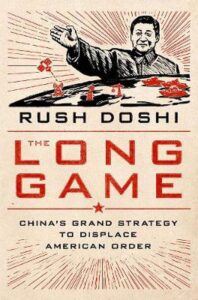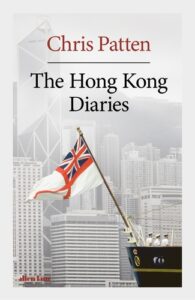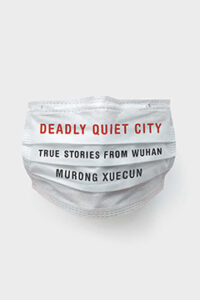
Thousands of ethnic minority Muslims surrounded a mosque in southwestern China over the weekend in a last-ditch effort to prevent what they said was an attempt by authorities to remove its dome and minarets, as a crackdown on religious freedoms widens, CNN reports. The apparent alteration of a mosque belonging to the Hui ethnic group in Najiaying village, Yunnan province comes amid a sweeping campaign unleashed by China’s leader Xi Jinping to “sinicize” religion.
Given the fundamental differences in national interests and strategies, is a reset of U.S.-China relations possible? Under Xi’s increasingly authoritarian regime, China’s determination to displace the U.S. has only intensified. Would gestures to reduce conflict and seek a peaceful economic coexistence be reciprocated—or just treated as a sign of weakness? economist Robert Kuttner asks.
If his National Security Council colleagues have read Rush Doshi’s pathbreaking book, The Long Game: China’s Grand Strategy to Displace American Order, they would know that the Chinese Communist Party is unlikely to change its goals or tactics. The Biden administration has been pursuing modest confidence-building measures, such as ending restrictions on flights to and from China. But there is no sign that China is reciprocating, he writes for The American Prospect.
“I’m skeptical of the possibility of a fundamental reset,” says James Mann. “The strategic differences are too great, unless the reset would be overwhelmingly on China’s terms.”
In reaching out to rising and middle powers, the G7 wants to persuade others to join its more muscular response to China’s rise, adds Nouriel Roubini, author of MegaThreats: Ten Dangerous Trends That Imperil Our Future, and How to Survive Them. Many will likely agree with the depiction of China as an authoritarian, state-capitalist power that is increasingly assertive in projecting power in Asia and globally, he writes for Project Syndicate.
 China’s assertions about the decline of the West reveal an underlying anxiety, notes Chris Patten, the last British governor of Hong Kong and the author of The Hong Kong Diaries (Allen Lane, 2022). After all, if liberal democracy is failing, why do Chinese officials consistently express their fear of it? The fact that leaders of the Communist Party of China have instructed rank-and-file members to engage in an “intense struggle” against liberal-democratic values indicates that they view open societies as an existential threat.
China’s assertions about the decline of the West reveal an underlying anxiety, notes Chris Patten, the last British governor of Hong Kong and the author of The Hong Kong Diaries (Allen Lane, 2022). After all, if liberal democracy is failing, why do Chinese officials consistently express their fear of it? The fact that leaders of the Communist Party of China have instructed rank-and-file members to engage in an “intense struggle” against liberal-democratic values indicates that they view open societies as an existential threat.
CPC leaders are known for their suspicion of intellectual inquiry, particularly when it comes to Chinese history. Their efforts to stifle the memory of the 1989 Tiananmen Square massacre of protesting students and workers by the Peoples’ Liberation Army are a case in point. Two recent examples provide further evidence of the regime’s opposition to free speech, its brutal hostility to criticism, and its deep-seated fear of its own people, he writes for Project Syndicate:
 First, in Hong Kong, Chief Executive John Lee, the ex-policeman who is overseeing the city’s transformation into a police state, recently ordered public libraries to remove books that might challenge CPC orthodoxy. While depriving people of access to books is not the same as burning them, history teaches us that the latter often follows the former.
First, in Hong Kong, Chief Executive John Lee, the ex-policeman who is overseeing the city’s transformation into a police state, recently ordered public libraries to remove books that might challenge CPC orthodoxy. While depriving people of access to books is not the same as burning them, history teaches us that the latter often follows the former.- Second, a new book by the acclaimed Chinese novelist Murong Xuecun, whose earlier writings have been banned and who now lives in exile in Australia, sheds light on the events that unfolded in Wuhan during the early stages of the COVID-19 pandemic. In Deadly Quiet City, Murong focuses on firsthand accounts of Wuhan residents, including citizen journalists like Zhang Zhan, who faced arrest, torture, and imprisonment when he tried to find out the truth about the situation in the city.
These revelations do not inspire much confidence in China’s willingness to cooperate with Western countries in addressing global challenges, Patten adds. Given its reliance on deceit and obfuscation, and its fear of free and open debate, perhaps China should reflect on its own actions before calling other countries decadent.







